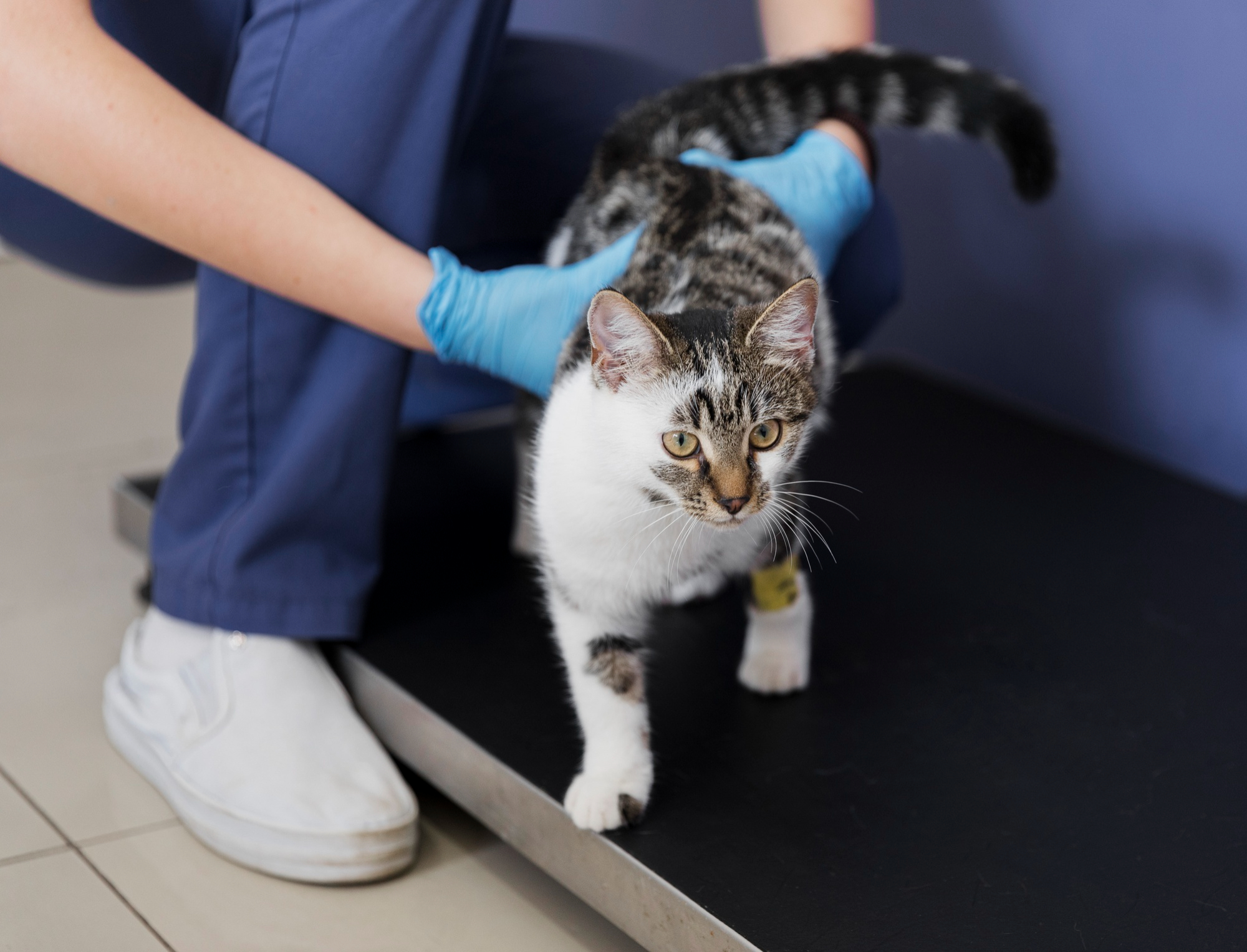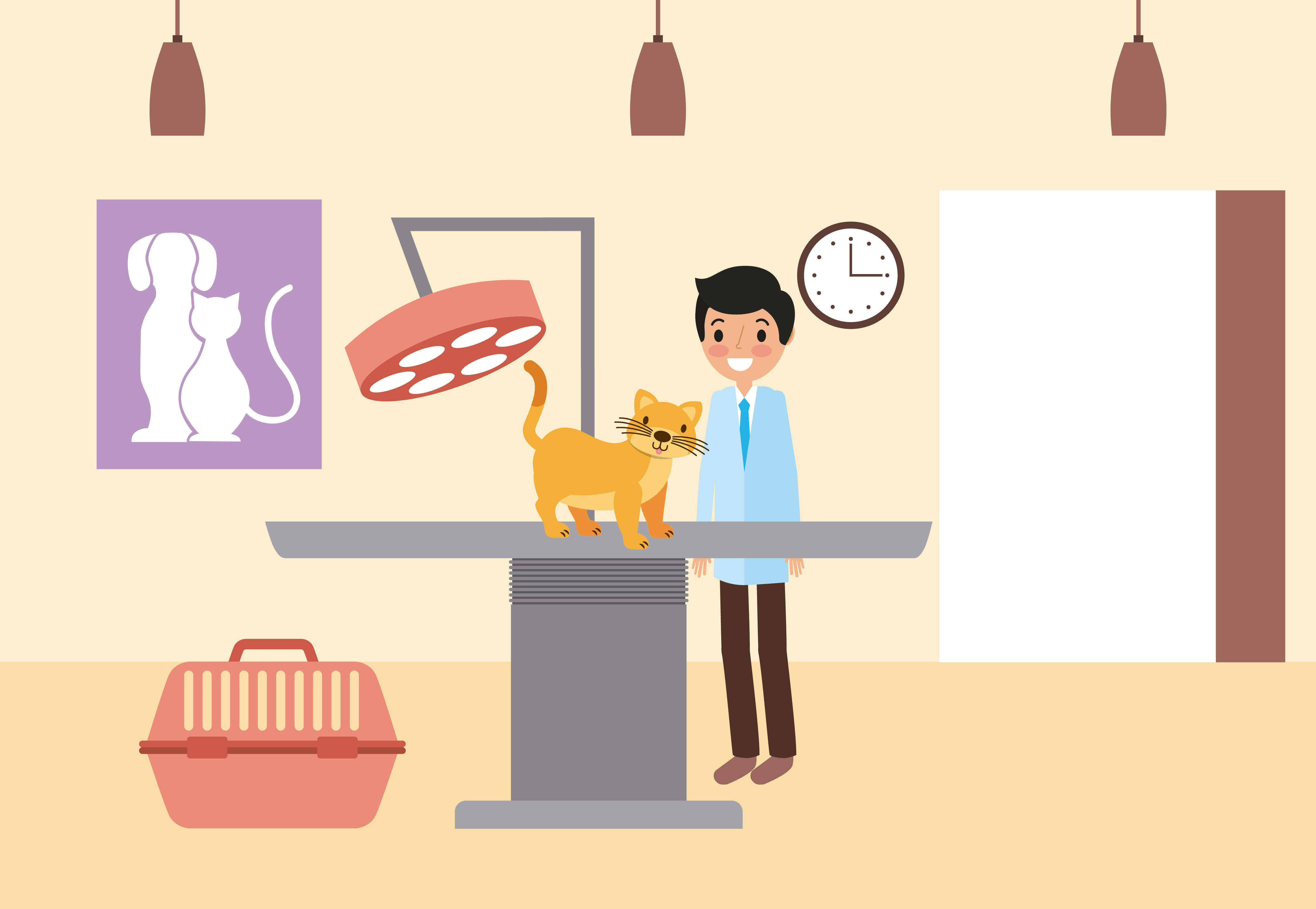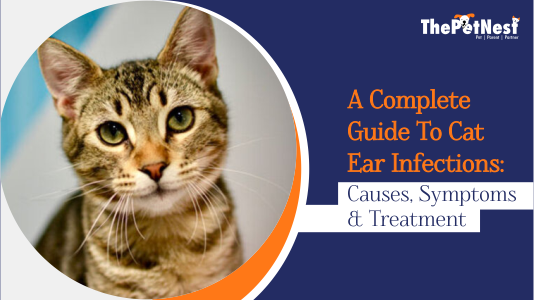A Complete Guide To Cat Ear Infections: Causes, Symptoms & Treatment
Ear infections, also known as otitis, are a common issue in cats. They can be caused by a variety of factors, including bacteria, yeast, mites, allergies, and foreign objects. Some cats may be predisposed to ear infections due to certain medical conditions or genetic factors.
If you think your cat may have allergies, talk to @ThePetNest about the symptoms your cat is experiencing, testing and treatment options available.

Symptoms Of Ear Infections In Cats Can Include:
- Shaking or tilting the head
- Scratching or rubbing the ears
- Odor coming from the ears
- Redness or swelling of the ear flap or ear canal
- Discharge (such as wax, pus, or blood) from the ears
- Loss of balance or coordination
- Loss of appetite or depression

Causes of Cat Ear Infections
There are several factors that can contribute to the development of ear infections in cats, including:
- Allergies: Cats can develop allergies to things like pollens, molds, and certain foods, which can lead to ear infections.
- Ear mites: These tiny parasites can cause inflammation and infection in your cat's ears.
- Foreign bodies: Cats are curious creatures and they may accidentally get something stuck in their ear, such as a piece of grass or a small toy.
- Moisture: Cats with long or floppy ears may be more prone to ear infections if their ears stay moist and warm, creating a breeding ground for bacteria and yeast.
- Underlying health issues: Cats with certain underlying health conditions, such as diabetes or a compromised immune system, may be more prone to ear infections.

Symptoms of Cat Ear Infections
If your cat is suffering from an ear infection, you may notice one or more of the following symptoms:
- Excessive scratching or rubbing of the ears
- Redness and swelling in the ears
- A foul smell coming from the ears
- Discharge or wax build-up in the ears
- Head tilting or shaking
- Loss of balance or difficulty walking
- Loss of appetite or lethargy
If you notice any of these symptoms, it's important to take your cat to the veterinarian as soon as possible!

Treatment of Cat Ear Infections
The treatment for cat ear infections will depend on the underlying cause of the infection. Your veterinarian may recommend one or more of the following treatment options:
- Medications: Your veterinarian may prescribe antibiotics, antifungal medication, or ear drops to clear up the infection and reduce inflammation.
- Cleaning: Your veterinarian may recommend cleaning your cat's ears to remove excess wax and discharge.
- Allergy Management: If allergies are causing your cat's ear infections, your veterinarian may recommend a change in diet or other allergy management techniques.
- Foreign Body Removal: If your cat has something stuck in its ear, your veterinarian will remove it and clean the ear to prevent further infection.

It's important to follow your veterinarian's instructions and give your cat all prescribed medications as directed. If the infection is not properly treated, it can lead to more serious problems, such as deafness or damage to the ear canal.
Prevention of Cat Ear Infections
There are several steps you can take to help prevent ear infections in your cat:
- Keep your cat's ears clean: Use a gentle ear cleaner to remove excess wax and debris from your cat's ears on a regular basis.
- Protect your cat from ear mites: Use an ear mite preventative as directed by your veterinarian.
- Keep your cat's ears dry: If your cat has long or floppy ears, try to keep the ears as dry as possible, especially after baths or swimming.
- Address underlying health issues: If your cat has an underlying health condition that puts it at risk for ear infections, work with your veterinarian to manage the condition and reduce the risk of infections.
- Avoid over-cleaning: While it's important to keep your cat's ears clean, avoid over-cleaning as this can strip the ears of natural oils and increase the risk of infection.
By following these tips, you can help keep your cat's ears healthy and free from infection.

Don't let your cat suffer any longer, book a consultation session with our online vet today and get them on the road to recovery!
With our online consultation service, you can get expert advice on how to care for your cat and the necessary medication to treat the infection.




New Comment